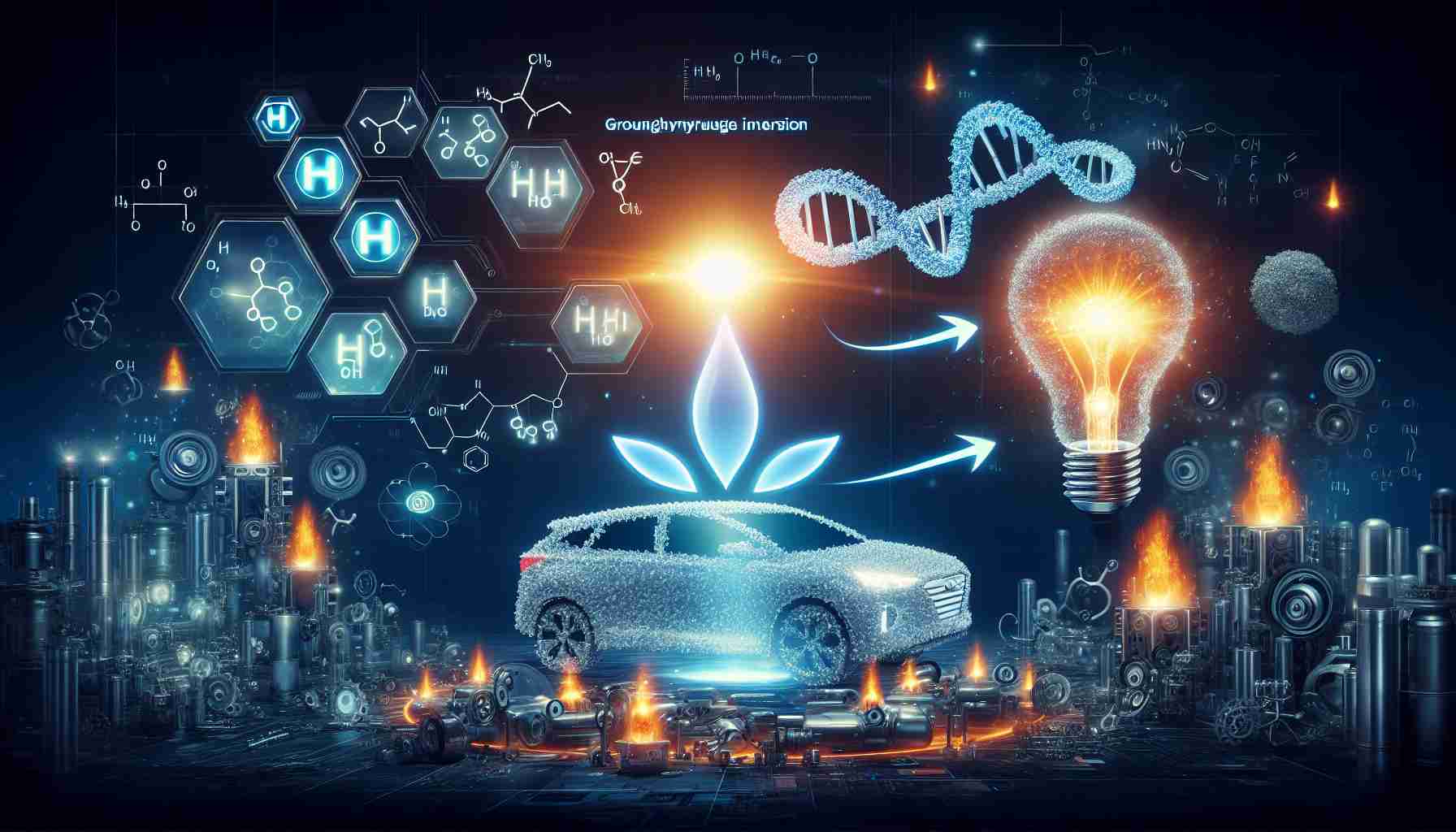Hyundai’s Hydrogen Revolution in Georgia
Hyundai Motor Group is blazing a trail in eco-friendly energy solutions with its cutting-edge hydrogen technology showcased at the Georgia Metaplant. This initiative emphasizes hydrogen’s role as a clean and adaptable energy source, tackling environmental challenges and enhancing logistics.
Hydrogen-Powered Trucks Redefine Transport
Hyundai has introduced a fleet of 21 hydrogen fuel cell trucks at its Georgia facility, marking a significant leap in sustainable logistics. These heavy-duty Class 8 trucks are designed for efficient part transportation from suppliers, boasting a remarkable feature: they produce zero emissions, releasing only water vapor into the atmosphere. This innovative design alleviates concerns over range limitations often faced in long-haul transport, promoting cleaner transportation methods.
Innovative Waste-to-Hydrogen System
At the core of Hyundai’s advancements is a transformative initiative that converts organic waste into hydrogen. By utilizing anaerobic digestion, the company breaks down food scraps and other organic materials to create biogas, which is subsequently refined into biomethane and converted into high-purity hydrogen. This process not only generates clean energy but also addresses waste disposal challenges, paving the way for potential uses of non-recyclable plastics.
Green Hydrogen’s Future Potential
Hyundai’s green hydrogen, produced through renewable energy electrolysis, provides a clean power source for various industries, setting a solid foundation for a net-zero future. The company’s commitment to expanding hydrogen applications extends beyond trucks, forecasting a comprehensive hydrogen ecosystem involving trains, aviation, and maritime transport.
With ongoing infrastructure developments, Hyundai is positioning itself as a leader in hydrogen technology, offering a promising glimpse into a sustainable energy landscape.
Hyundai’s Hydrogen Revolution: Leading the Charge in Sustainable Energy
Hyundai’s Hydrogen Revolution in Georgia
Hyundai Motor Group is at the forefront of eco-friendly energy solutions with its revolutionary hydrogen technology, prominently displayed at the Georgia Metaplant. This initiative not only highlights hydrogen’s capacity as a clean and adaptable energy source but also addresses critical environmental challenges while transforming logistics.
Hydrogen-Powered Trucks Redefine Transport
Hyundai has rolled out a remarkable fleet of 21 hydrogen fuel cell trucks at its Georgia facility. These heavy-duty Class 8 trucks are set to redefine sustainable logistics by featuring zero emissions, emitting only water vapor as a byproduct. This innovative fleet overcomes the traditional range limitations seen in long-haul transport, setting a new standard for cleaner transportation methods and providing companies with sustainable logistics options.
Innovative Waste-to-Hydrogen System
Central to Hyundai’s advancements is an innovative waste-to-hydrogen system that transforms organic waste into hydrogen fuel. Utilizing anaerobic digestion, the company effectively decomposes food scraps and other organic materials to generate biogas, which is then converted into high-purity hydrogen. This process not only contributes to cleaner energy production but also mitigates waste disposal issues, offering an effective solution for dealing with non-recyclable plastics.
Green Hydrogen’s Future Potential
Hyundai’s commitment to green hydrogen—produced via renewable energy electrolysis—positions the company as a key player in fostering a net-zero future. Beyond its fleet of trucks, Hyundai is envisioning a comprehensive hydrogen ecosystem that encompasses various modes of transportation, including trains, aviation, and maritime transport.
Market Analysis and Trends
As global markets increasingly pivot towards sustainability, Hyundai’s advancements reflect broader trends in the automotive and energy sectors. The growing demand for clean transportation fuels and infrastructure support for hydrogen fuels positions Hyundai as a leader in the burgeoning hydrogen economy. Industry experts predict that as regulations on emissions become stringent and the push for renewable energy sources intensifies, companies investing in hydrogen solutions will gain a competitive edge.
Insights into Hydrogen Technology
Hyundai’s initiatives underline crucial insights about the future of energy:
– Versatility of Hydrogen: Beyond transportation, hydrogen has the potential to power industries ranging from manufacturing to heating.
– Infrastructure Needs: The success of hydrogen as a mainstream energy source will depend on the expansion of refueling stations and production facilities.
– Investment Opportunities: Investors may find promising opportunities in companies innovating in hydrogen technology, especially those focused on waste management and renewable methods.
Benefits and Limitations of Hydrogen Fuel
Pros:
– Zero Emissions: Hydrogen produces only water vapor when consumed, reducing air pollution significantly.
– Sustainable Production: Initiatives like waste-to-hydrogen create a circular economy, utilizing waste as a resource.
– Diverse Applications: Hydrogen can be used in various sectors, including transportation, energy storage, and industrial processes.
Cons:
– Infrastructure Challenges: The current lack of widespread hydrogen refueling stations may hinder adoption.
– Cost of Production: Green hydrogen production remains more expensive than traditional fossil fuels, though costs are projected to decrease as technology advances.
Conclusion
Hyundai Motor Group is paving the way for a sustainable energy future through its innovative hydrogen technologies at the Georgia Metaplant. By capitalizing on hydrogen’s potential, the company contributes to a cleaner environment while positioning itself strategically within the evolving energy landscape. As the world shifts towards a more sustainable future, Hyundai’s initiatives in hydrogen technology may lead to significant advancements in how we think about and use energy.
For more information about Hyundai’s innovative solutions, visit Hyundai.

